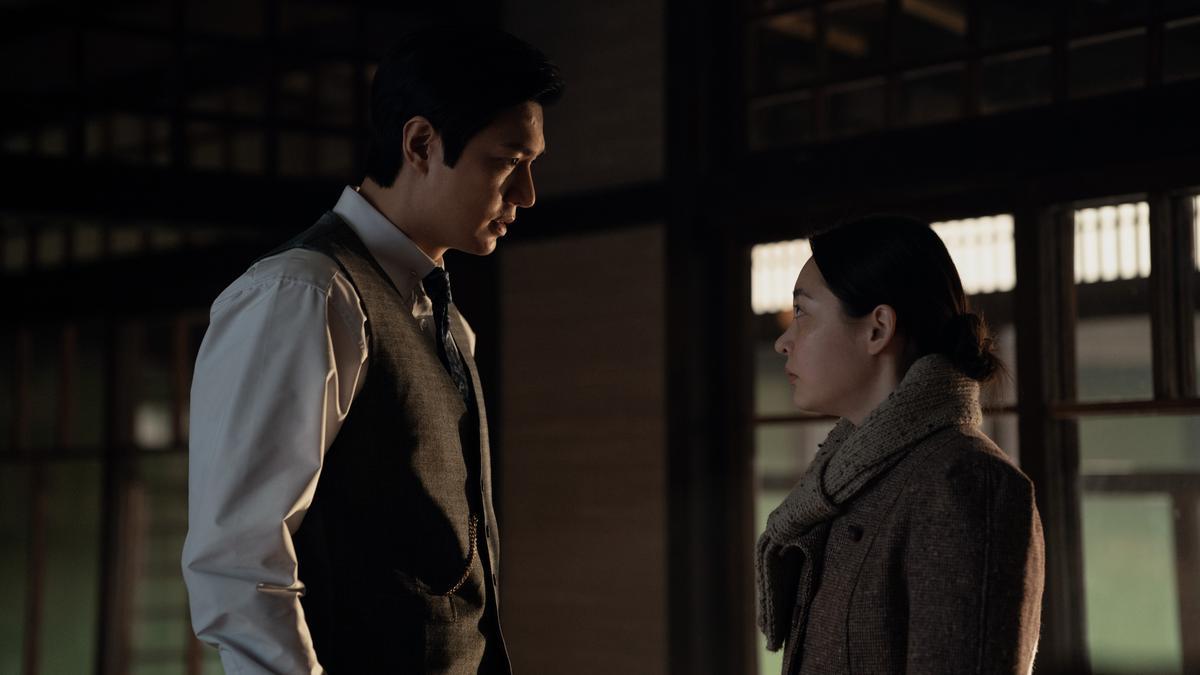
Early in the premiere episode of the second season of Pachinko, an intense scene unfolds as American fighter planes drop pamphlets to urge residents to petition the emperor to “halt this brutal war.” It’s 1945, and Osaka is steeped in the haunting reminders of World War II and the looming threat of bombings. This pervasive sense of uncertainty significantly impacts Sunja and her small family, amplifying their ongoing struggles.
ALSO READ: Why Korean epic ‘Pachinko’, starring Lee Min-ho and Kim Min-ha, is timely
Based on Min Jin Lee’s best-selling novel, Pachinko’s first season made its debut in 2022, diverging from the book’s straightforward timeline by interweaving narratives from two different periods: the 1940s, which focus on Sunja’s life in Korea and Japan during the war, and 1989, chronicling her grandson Solomon Baek’s return to Japan from New York for a critical assignment in his finance career.
In Season 1, viewers saw Sunja grappling with an unexpected pregnancy and adjusting to life in Osaka after leaving Japanese-occupied Korea with her husband, Baek Isak (Steve Sanghyun Noh). As Season 2 unfolds, Sunja finds herself confronting even greater hardships. Isak remains imprisoned for supporting laborers in their fight for fair wages, while Sunja’s brother-in-law Yoseb (Han Joon-woo) works in a Nagasaki factory. Sunja and her sister-in-law Kyunghee (Jung Eun-chae) worry about feeding her children, who endure eating worm-infested rations. Sunja’s determined declaration, “I am good at selling,” sets the stage for her to risk her life by selling rice wine in the illegal black market.
Yoon Yuh Jung portrays an older Sunja in the 1980s
| Photo Credit: Apple TV+
Parallelly, in the late 1980s, Solomon’s father Mozasu (Soji Arai) prepares to launch a new Pachinko Parlour. Solomon, having left his previous job at the end of the first season after a botched business deal influenced by the poignant tale of a senior Korean immigrant resisting land sale, now seeks to gather investors for his fresh project.
A book as expansive as ‘Pachinko’ demands a meticulous and almost poetic development on-screen—a feat impeccably achieved in the first season. Amidst the current climate where many shows face uncertain renewals, Pachinko’s second season, too, takes its time unfolding its narrative. The premiere episode maintains a leisurely yet engrossing pace, portraying how the central characters’ lives have evolved.
. Sunja, now portrayed with a blend of helplessness and unyielding determination by Minha Kim, is committed to providing for her sons Noa and Mozasu, the latter portrayed by Kim Kang-hoon and Eunseong Kwon respectively, both commendable additions to the cast.
Mozasu’s spiritedness contrasts starkly with Noa’s subdued demeanor. Mozasu’s infectious eagerness to “defeat the enemies,” as he practices government drills, is a stark contrast to Noa’s world-weary struggle with the discrimination faced by Koreans in Japan (zainichis). As Noa confronts taunts from classmates about his identity, an echo of this racial tension is felt in Solomon’s 1989 storyline. Solomon, unnerved by a Japanese bakery owner’s angry outburst against his grandmother Sunja (Yoon Yuh-Jung), exclaims, “I’m from Yale University,” highlighting how much and yet how little has changed across generations. Jin Ha, as Solomon, skillfully embodies a character on the brink, torn between his professional ambitions and personal conflicts, making his arc—though now diverged from the book—particularly intriguing this season.
Young Noa and Mozasu from the show
| Photo Credit: Apple TV+
In the first season, the show’s creators opted to delve deeply into Koh Hansu’s character, the influential fish broker whose relationship with Sunja propels much of the narrative. Lee Min-ho’s portrayal of Hansu, especially in an episode set against the 1923 Great Kanto Earthquake and directed by Kogonada, is considered a career-best performance. Hansu’s formidable presence continues to cast a shadow over Sunja and her sons in the new season.
Showrunner Soo Hugh has frequently emphasized the universality of Pachinko’s themes—love, loss, grief, and survival transcending generations. A significant strength of the show lies in its restraint, steering clear of overly indulgent melodrama and maintaining a poignant, subdued narrative tone. The expansive canvas and grand scale of Pachinko are carried forward into the second season with the same grace and depth. The premiere episode sets a hopeful tone for the season, suggesting another compelling journey through the lives of its central characters.
The second season of Pachinko is currently streaming on Apple TV+, with new episodes releasing every Friday.
World cinema / reviews / entertainment (general)












